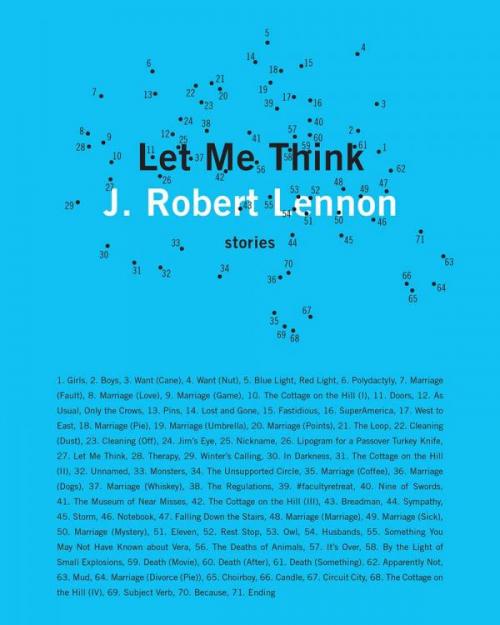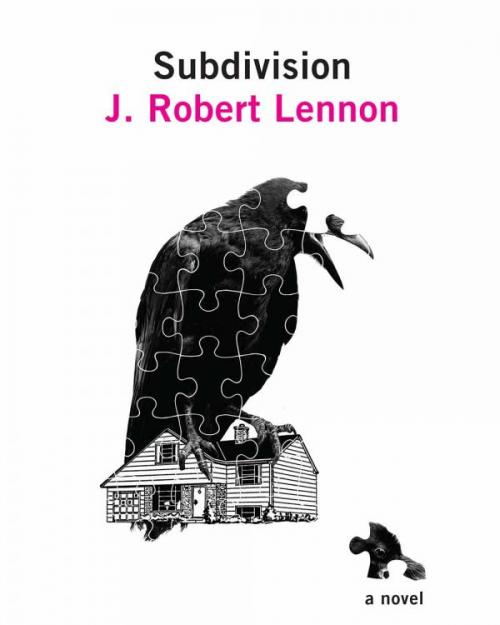The opening of “Subdivision,” J. Robert Lennon’s new novel, might be familiar to anyone who’s checked into a bed-and-breakfast. Familiar, and yet a little off.
“At the guesthouse, I was invited to come downstairs anytime and work on the puzzle,” the unnamed protagonist begins, describing a massive jigsaw puzzle that her hosts, Clara and the Judge, seem to be more interested in than her. “The ladies had not yet given me a key or even revealed which room I would be staying in; indeed, showing me the puzzle had been their top priority upon welcoming me at the door.”
Lennon, professor of Literatures in English in the College of Arts and Sciences, published two new books on April 6: “Subdivision,” a fantastical novel about memory and trauma; and “Let me Think,” 71 short stories collected from years of observing and chronicling the American absurd in fiction.
The eerie start to “Subdivision” grew from a seed of real life for Lennon, who teaches fiction in Cornell’s Creative Writing Program.
“I once stayed in a bed-and-breakfast where the proprietors invited me to work on a giant puzzle in the front room,” Lennon said. “It felt like my stay was supposed to be some kind of task I had to make progress on.”
Eventually, he tried writing about the experience and realized what the task could be, in a novel: the piecing together of a broken life.
The main character in “Subdivision” intends to find an apartment, apply for a job, and get a fresh start in life from her temporary headquarters in the guesthouse. Instead, she’s diverted into a sequence of events redolent of bad dreams, such as a physics experiment in an abandoned office tower and a cryptic birthday party. She encounters strange characters including a lovelorn truck driver, a mysterious child and a watchful crow.
“My work over the past 10 years has tended towards the creepy, ‘thrillery’ and fantastical,” Lennon said.
The stories in “Let Me Think,” similarly, find and exploit the absurd side of familiar facets of life: cell phone weather apps, volunteer work, encounters with wildlife, family gatherings.
“I had about 125 stories to choose from,” Lennon said. “Many of them came from experiments and exercises I’d given myself over the past 15 years. I ended up arranging them into roughly thematic sections, then removing a lot that didn’t really fit, and writing a few more.”
Some stories in “Let Me Think” are a mere paragraph long, while others span several pages. And a few series of interconnected stories run through the five sections of the collection.
In one series, an unnamed couple keeps popping up in stories mentioning “Marriage” in their titles. Readers follow two people known only by their personal pronouns through a string of fraught – but darkly funny – episodes that seem to chronicle a disintegrating relationship.
Another linked series scattered throughout the book, “The Cottage on the Hill,” tells the saga of a man who returns to a rental cottage, originally owned by a gas company, at different points during his life. The cottage changes as much as the man.
Lennon said it was not easy to choose, polish and arrange so many of his stories, but the process was fun.
A prolific writer, Lennon has published nine novels and two collections of short stories. His career at longtime publisher Graywolf Press started with the 2005 dual publication of a novel, “Castle,” and book of short stories, “Pieces for the Left Hand.”
So where does a reader new to Lennon’s work start?
“You can’t go wrong with these new ones,” he said. “They’re short, so you’ll know pretty quickly if you like what I do.”
Lennon will appear in an online literary event April 21, 7 p.m., hosted by Ithaca’s Buffalo Street Books on April 21, 7 p.m. with poets Gina Nutt and Charlie Green, senior lecturer in the Department of Literatures in English.






